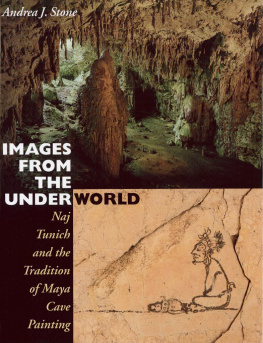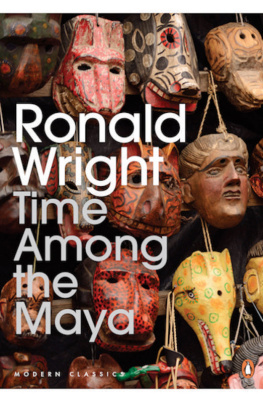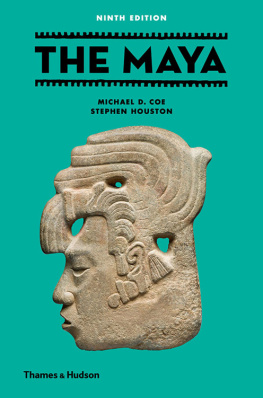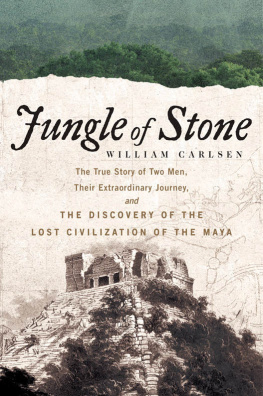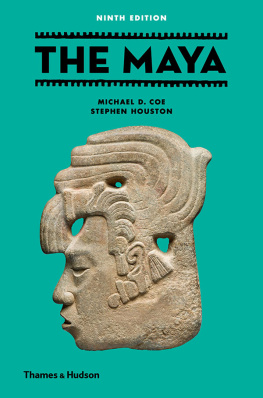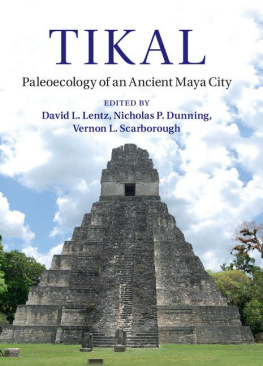
The Technology of Maya Civilization
Approaches to Anthropological Archaeology
Series Editor: Thomas E. Levy, University of California, San Diego
Editorial Board
Guillermo Algaze, University of California, San Diego
Geoffrey E. Braswell, University of California, San Diego
Paul S. Goldstein, University of California, San Diego
Joyce Marcus, University of Michigan
This series recognizes the fundamental role that anthropology now plays in archaeology and also integrates the strengths of various research paradigms that characterize archaeology on the world scene today. Some of these different approaches include New or Processual archaeology, Post-Processual, evolutionist, cognitive, symbolic, Marxist, and historical archaeologies. Anthropological archaeology accomplishes its goals by taking into account the cultural and, when possible, historical context of the material remains being studied. This involves the development of models concerning the formative role of cognition, symbolism, and ideology in human societies to explain the more material and economic dimensions of human culture that are the natural purview of archaeological data. It also involves an understanding of the cultural ecology of the societies being studied, and of the limitations and opportunities that the environment (both natural and cultural) imposes on the evolution or devolution of human societies. Based on the assumption that cultures never develop in isolation, Anthropological Archaeology takes a regional approach to tackling fundamental issues concerning past cultural evolution anywhere in the world.
Published
Archaeology, Anthropology and Cult: The Sanctuary at Gilat, Israel
Edited by Thomas E. Levy
Connectivity in Antiquity: Globalization as a Long Term Historical Process
Edited by ystein LaBinaca and Sandra Arnold Scham
Israels Ethnogenesis: Settlement, Interaction, Expansion and Resistance
Avraham Faust
Axe Age: Acheulian Tool-making from Quarry to Discard
Edited by Naama Goren-Inbar and Gonen Sharon
New Approaches to Old Stones: Recent Studies of Ground Stone Artifacts
Edited by Yorke M. Rowan and Jennie R. Ebeling
Prehistoric Societies on the Northern Frontiers of China: Archaeological Perspectives on Identity Formation and Economic Change during the First Millennium BCE
Gideon Shelach
Dawn of the Metal Age: Technology and Society during the Levantine Chalcolithic
Jonathan M. Golden
Metal, Nomads and Culture Contact: The Middle East and North Africa
Nils Anfnset
Animal Husbandry in Ancient IsraelA Zoo-archaeological Perspective: Herd Management, Economic Strategies and Animal Exploitation
Aharon Sassoon
Ultimate Devotion: The Historical Impact and Archaeological Expression of Intense Religious Movements
Yoav Arbel
Structured Worlds: The Archaeology of Hunter-Gatherer Thought and Action
Edited by Aubrey Cannon
Early Bronze Age Goods Exchange in the Southern Levant: A Marxist Perspective
Ianir Milevski
Agency and Identity in the Ancient Near East: New Paths Forward
Edited by Sharon R. Steadman and Jennifer C. Ross
The Technology of Maya Civilization
Political Economy and Beyond in Lithic Studies
Edited by
Zachary X. Hruby,
Geoffrey E. Braswell,
and
Oswaldo Chinchilla Mazariegos
First published 2011 by Equinox, an imprint of Acumen
Published 2014 by Routledge
2 Park Square, Milton Park, Abingdon, Oxon OX14 4RN
711 Third Avenue, New York, NY 10017, USA
Routledge is an imprint of the Taylor and Francis Group, an informa business
Zachary X. Hruby, Geoffrey E. Braswell, and Oswaldo Chinchilla Mazariegos 2011
All rights reserved. No part of this book may be reprinted or reproduced or utilised in any form or by any electronic, mechanical, or other means, now known or hereafter invented, including photocopying and recording, or in any information storage or retrieval system, without permission in writing from the publishers.
Notices
Practitioners and researchers must always rely on their own experience and knowledge in evaluating and using any information, methods, compounds, or experiments described herein. In using such information or methods they should be mindful of their own safety and the safety of others, including parties for whom they have a professional responsibility.
To the fullest extent of the law, neither the Publisher nor the authors, contributors, or editors, assume any liability for any injury and/or damage to persons or property as a matter of products liability, negligence or otherwise, or from any use or operation of any methods, products, instructions, or ideas contained in the material herein.
Library of Congress Cataloguing-in-Publication Data
A catalogue record for this book is available from the Library of Congress
ISBN 978-1-84553-508-7 (hardback)
Typeset and edited by Forthcoming Publications Ltd
To Allan J. Hruby III, Emory H. Braswell,
and Oswaldo Chinchilla Aguilar,
for their love and unfailing support
Contents
Geoffrey E. Braswell
Part I
COMPARATIVE STUDIES
Jason W. Barrett, Harry J. Shafer, and Thomas R. Hester
Hattula Moholy-Nagy
Kazuo Aoyama
Part II
CHERT STUDIES
Jason W. Barrett
Nicholas F. Hearth and Scott L. Fedick
Bruce H. Dahlin, Marjukka Bastamow, Timothy Beach, Zachary X. Hruby, Scott R. Hutson, and Daniel Mazeau
Part III
OBSIDIAN STUDIES
Jos Crasborn Chavarra
Oswaldo Chinchilla Mazariegos
Geoffrey E. Braswell and Michael D. Glascock
Edgar Suyuc Ley
Part IV
JADE STUDIES
Karl A. Taube, Zachary X. Hruby, and Luis A. Romero
Brigitte Kovacevich
Part V
CONCLUSION
Zachary X. Hruby
Kazuo Aoyama is a professor of Anthropology at Ibaraki University, Japan. He has worked extensively in western Honduras and the southwestern Petn, Guatemala.
Email: aoyama@mx.ibaraki.ac.jp
Jason W. Barrett is an adjunct professor of Anthropology at Texas A&M and an archaeologist for the Environmental Affairs Division of the Texas Department of Transportation.
Email: jwbarrett@gmail.com
Marjukka Bastamow is an M.A. student in the Department of Archaeology, Institute for Cultural Research, University of Helsinki.
Email: marjukka.bastamow@helsinki.fi
Timothy Beach is an associate professor of Geography and Geoscience at the School of Foreign Service, Georgetown University, and is known for his work on the environmental history of the Maya.
Email: beacht@georgetown.edu
Geoffrey E. Braswell is an associate professor of Anthropology at the University of California, San Diego, and director of the Toledo Regional Interaction Project, Belize.
Email: gbraswell@ucsd.edu
Oswaldo Chinchilla Mazariegos is the curator of the Museo Popol Vuh, Universidad Francisco Marroqun, Guatemala.
Email: ofchinch@ufm.edu.gt
Jos Crasborn Chavarra is the director of the Parque Arqueolgico Quirigu, Guatemala.
Email: josecrasborn@yahoo.com


